Hamish McLachlan: Brian Taylor shares his ‘sliding doors’ moment and that life-changing phone call
Larger than life footy commentator Brian Taylor tells Hamish McLachlan of his rebellious childhood, avoiding the wrong path, being picked up at the airport by Kevin Sheedy, living with Mick Malthouse and onfield aggression.
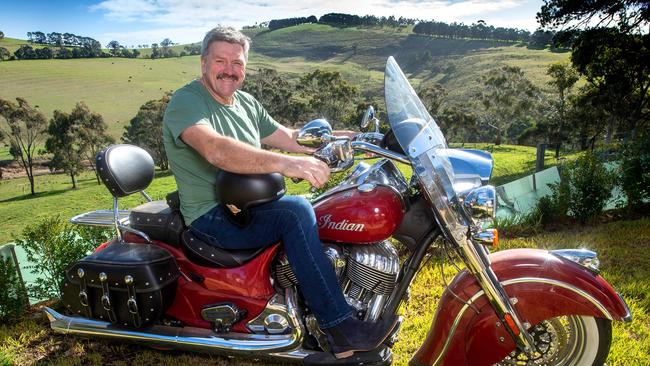
News
Don't miss out on the headlines from News. Followed categories will be added to My News.
Brian Taylor grew up in Western Australia and had no intention to make a career out of football. He took a phone call, went to a final training session for the U/18 state side, and his life changed. We spoke about sliding door moments, the worries of parenting, plumbing, the move from Richmond to Collingwood, regrets from his playing career and finding his way in the media.
HAMISH: You’re one of four kids aren’t you BT?
BRIAN: I am. Two older brothers, and a younger sister. One of my brothers has passed away. He had a heart attack very suddenly and far too young a few years back. He was on his way to work as a miner in Western Australia. He was only 51.
HM: So young — I’m sorry. Did you all grow up together in Mandurah?
BT: We did. I was born in Perth and moved to Mandurah at a very young age. I spent most of my early childhood there. Dad was a truck driver and drove road trains north and south from Perth.
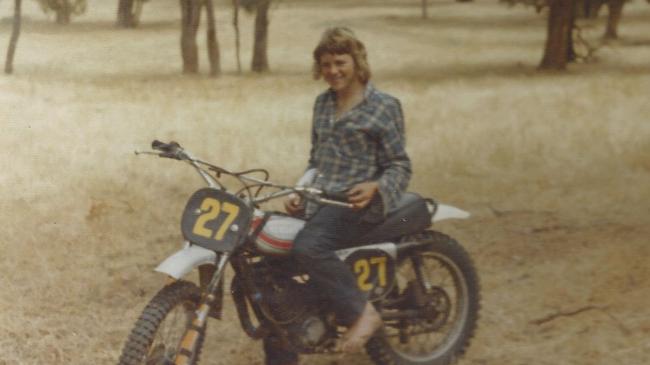
HM: Your mum, Shirley, was a doer. She started the local basketball competition there?
BT: She started the first junior basketball competition. We used to go and watch the seniors, and I loved it, and Mum said, “Well, why don’t we start a junior competition?” I remember going to school the next day and recruited in order for mum to get enough players to make three or four teams. That junior competition has now become very, very strong.
HM: What did you learn from Shirley and Derek? Were they loving parents, or were they typical of many from that era, where affection was light on?
BT: Mum was softer than dad, but that particular era saw less outward affection. Love was there if you wanted it, but I wasn’t that mature emotionally, and always pushing it away a little bit.
HM: Are you a more affectionate father than Derek was?
BT: The apple doesn’t fall far from the tree, but I am more than my dad was. Well, I think I am.
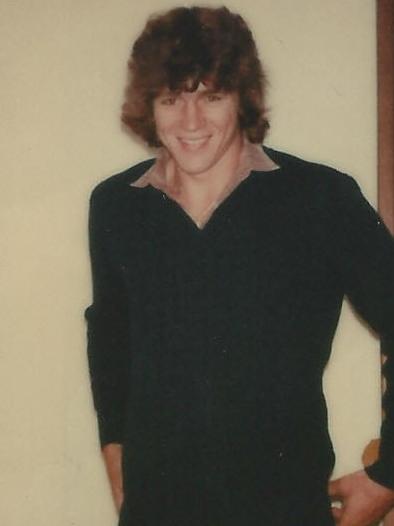
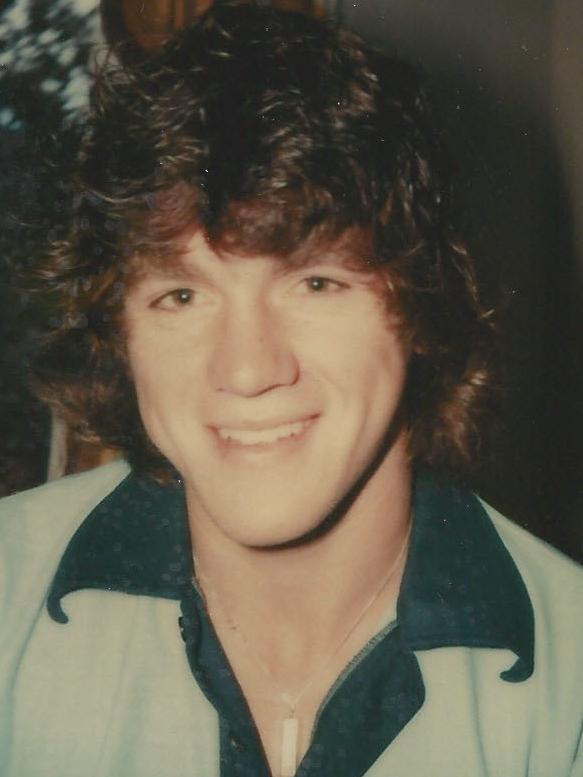
HM: What do you feel is the hardest part of parenting?
BT: Ensuring that your kids are all thinking about the right things and heading in the right direction. So, the battle is to keep showing them what they can do, and what is out there, and how to treat people. You never stop worrying as you want them to be healthy and happy and have the best possible life they can.
HM: Understood. You went on to play for WA in the U/16’s in basketball, and quite a few of your teammates went on to play for the Perth Wildcats? You hadn’t played much football up until that point had you?
BT: Very little. Bits and pieces here and there, but I preferred my basketball and motorbikes at that point. I had to be convinced to go to Teal Cup training, because I didn’t know what it was about, I’d never heard of it. Footy was there and I knew I could play, but it was a complete shock when I got a phone call to say, “Could you come to training in Perth and try out for the WA U/18 State team. I went to the very last training, luckily, because it essentially changed my life.
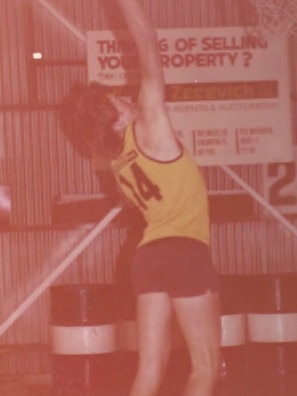
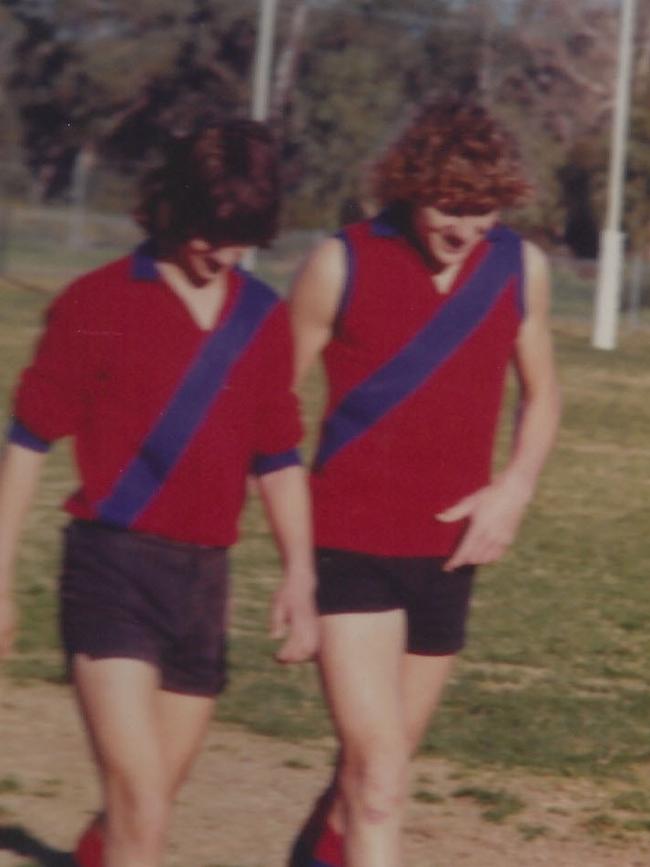
HM: You’ve said to me where you grew up, and the way you were you were living, your life could have gone down the wrong path but for sliding doors.
BT: I really believe that, it could have gone either way. I was a bit of a rebel, and a bit naughty. I was hanging out on the streets too much and early into the mornings. I’d go fishing some nights under the bridge and wouldn’t come home until 6am. You’d be walking the streets, just doing stuff you shouldn’t do. Black T-shirt, smokes under the arm, doing the wrong things with the wrong people too often.
HM: Football gave you an opportunity not all get. Did a few of your mates that you were growing up with not get those opportunities, and end up going down different, rugged pathways?
BT: Absolutely. A couple went to jail, and a couple I’m sure wish they’d made different choices. Every time I came back to WA to visit my friends, they’d be wondering why they didn’t get the opportunity that I did, because we all knew I wasn’t the best player of all my mates. And that’s something I learnt in footy very early — you don’t necessarily have to be the best, but you do have to be the most committed. You have to be prepared to give up things that many wouldn’t.
HM: You went to the last session of Teal Cup training, and made the U/18 WA team? When did Victorian clubs start calling?
BT: We went to SA and I played on Mark Wiedemann, who as a 17-year-old was playing in the SANFL. After that particular game, a few people approached me. I had no idea what was about to happen as I wasn’t looking for a career in football, I was in it for a trip away to SA! Two weeks after that trip I got a call from Richmond and within a week I had the president of Richmond, Ian Wilson, the GM Gareth Andrews, and the recruiting chief Noel Judkins on my doorstep.
HM: They’d come to you in Mandurah?
BT: I took them freshwater cray fishing. Ian Wilson was fishing in his tweed jacket, and Noel was in his RM Williams boots — he had no idea either! Neither have forgotten that trip!
HM: They sent back a contract to uproot and leave?
BT: Mum and Dad had never seen a contract in their lives, they didn’t know what to do with it, so they got a lawyer from Mandurah to look at it, and he had no idea either because he was a Mandurah lawyer! He said it looked like a pretty good deal and I was sure there wasn’t another deal coming, so I signed the paperwork.
HM: And jumped on the plane?
BT: And when I landed Kevin Sheedy was dressed in his RM Williams boots, a tight pair of jeans and shirt at the airport to meet me. Me! I couldn’t believe it. In Western Australia, all you got of the VFL on TV was “The Winners” and I thought it was the greatest show in the world, and Sheeds was always on it. To have this 250 game, three time premiership player, there to meet me at the airport, absolutely blew my mind. To go and live with him for a couple of days and settle in with him in Richmond was amazing. Also, the Malthouse’s, Mick and Nanette, were a big help in the early days.
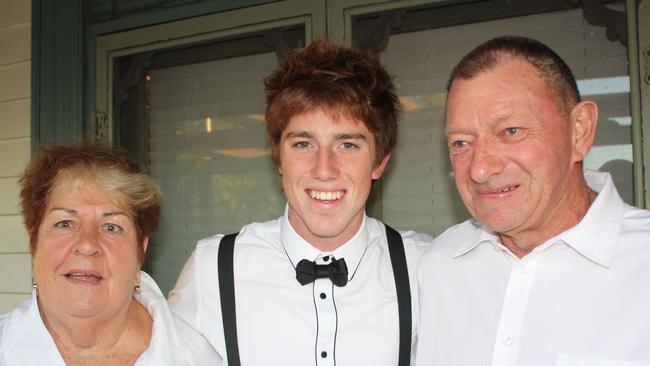
HM: After you’d lived with Sheeds, where did you go?
BT: I was billeted out to a lady in South Yarra; Mrs Reid. She looked after me for the next couple of years. There were a couple of other professional or young aspiring athletes there. I lived there for a year or so.
HM: You were told to do an apprenticeship while you settled in at the Tigers?
BT : I had the weekend to settle in and was told I had to be in Prahran to start work as an apprentice plumber at 7am. I arrived at this place, and he was exactly like my dad. This guy was bloody tough! He became the Mayor of Prahran — Bob Gill. I’ve never forgotten him. I was pretty homesick at that time, and I really needed guys like Bob around. I would have gone home if it wasn’t for Bob as I was very homesick at that time.
HM: A memorable first day on the tools?
BT: First day, Bob said “Jump in that van with that guy there” and by 7.15am we were in St Kilda at a block of flats, and there were all these different coloured lights flashing outside them. I thought “What the hell is this?” Remember, I’m only 17, and I was thinking “Is there a party going on here or something?”. I didn’t realise that they were brothels, and we were going there to fix a sewerage blockage in one of them. I had no idea that those places even existed.
HM: Mandurah naivety!
BT: Exactly. My boss said, “See that pit in the carpark there? I want you to climb down 12ft into the drain, shove the sewer rooter up the pipe, and when you hear the gurgles, get out as quick as you can”. As soon as I shoved it in, I heard the gurgles, but I didn’t get out quick enough. I was covered in sewerage. He pulled me out of the hole, hosed me off, and sent me back to work in a taxi because he wouldn’t take me in the car!
HM: Welcome to Melbourne! Your debut — you lined up on Bruce Doull. How did you go?
BT: No good. I remember Merv Keane, a Richmond half back flanker, three-time premiership player, said to me, “Brian, this is going to be the greatest day of your life”, as we were walking up the race. Bruce Doull was at the height of his career then, he was superb, I hardly saw the football! I came off the ground thinking “that’s not the greatest day of my life, that was terrible, how am I going to get there at this level?”
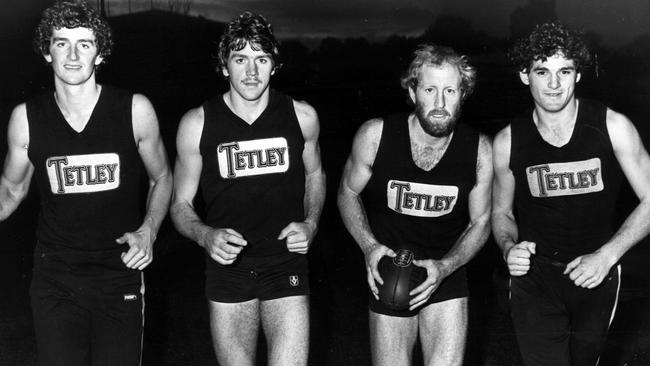
HM: Why did you leave the Tigers and decide the Pies were where you wanted to be going forward?
BT: I was up against Michael Roach at Richmond, and he was a brilliant player and I didn’t see myself being able to push him out of the full forward position at the time, so it was about opportunity for me. They tried us as a duo, and it didn’t quite work. I needed to get to a club that didn’t have a full forward. That was why I chose Collingwood.
HM: I’ve heard you say it was the best thing you ever did, but it was like turning up in Hollywood.
BT: Richmond were my family, they’d brought me up in that five year period, so it was like leaving my parents all over again. They’d nurtured me throughout this homesick period, and Noel Judkins had been superb in looking after me, and many others along the way as well. Richmond had come out of the 70s as a really successful side, led by hard people like Graham Richmond, and it was all business. At Collingwood, it seemed to be a little bit more fun, more outrageous. You’d get into the top floor of the social club and it was all laid out for you. It was a little more Hollywood.
HM: You took a pay cut to go to the Pies, didn’t you?
BT: Absolutely.
HM: I’ve read you’ve said “Full forwards were prima donnas. It was defenders smacking the full forwards around, so I took a stand the other way”.
BT: It was always the full back whacking the full forward and I wasn’t going to cop that. I always played aggressively, and some would say it appeared out of control at times, but it wasn’t. That was the way I wanted to play, that was the feel I wanted to give to let opposition players know that they weren’t going to be able to push me around.
HM: If there were 50m penalties back in the day for umpire abuse, what length in metres would you have conceded in your career?
BT: We’re talking kilometres, sadly, I think Hame! Abuse was partly accepted in those days, to within a certain degree, by the umpires. I don’t know how the umpires tolerated me at all. You could have a real crack at them, and they would have a crack back. When I look at it now and I sit with my kids, they look at me and go, “Dad, you can’t possibly think that it’s the right way to behave!” It’s hard to explain but that period was slightly different, although every time I run into those umpires now, I’m in apology mode straight away. I know I behaved poorly towards them.
HM: When you call a game now, you always know every number, you know how they bounce the ball, and you seem to actually have a great respect for the umpires.
BT: I’ve found great respect for umpires, but should have had it from years ago! It’s a bloody tough job, and I think they do a brilliant job. They are part of the game. Every game, whether it be radio or TV, the first thing I do is I always mention their names. That’s important because they’re part of the game, and they deserve that. They need to be treated with great respect, and that’s not something I did. As a result, I feel like I’m trying to make amends there.
HM: When you look back at your career, 11 seasons, 100 goals and the Coleman Medal with the Pies in ’86, do you think you got everything out of your career?
BT: I don’t actually. I intermittently trained really hard. Some summers I’d be absolutely committed, training before anyone else, doing extra work, and I’d have a great year. But I didn’t do the work every year. It was semi-professional then and you could get away with it, but it was at your own expense. I look back at it all with a slight regret, because I know I could have been a lot more consistent and could have been better.
HM: Is it true in the late ’80s on the way to a final, you jumped out of a car to show displeasure, and then retreated?
BT: I was playing for Collingwood and driving to the MCG. I got to the intersection of Punt Road and Bridge Road. Someone had cut me off and abused me, and I got out of the car and did the old fist up against the window like I did with the umpire, and Tania (wife) was sitting in the car. It might have been the first or second time she’d been to the footy with me, and she was absolutely horrified. She couldn’t believe the man she was going to the football with, was out with his fist on the window of another car. She thought, “Shit, what the hell have I done here?”.
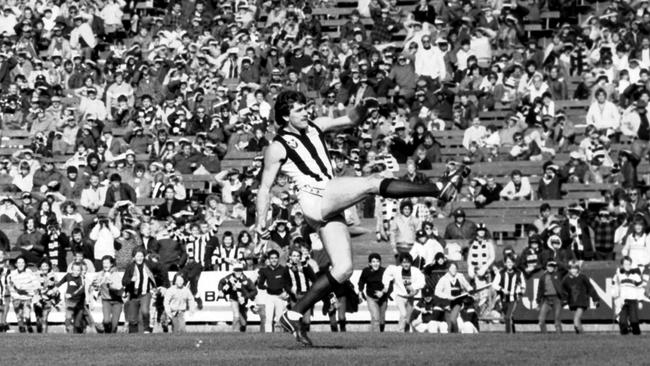
HM: Did the guy in the car have a Collingwood jumper on?
BT: He did. He was dressed in his Collingwood paraphernalia and he was going to support us, so half way through my spray, I sort of retreated and pulled my head in.
HM: You and Tania have been together for a long time. Are you surprised she is able to cope with all that comes with you?
BT: Very … Tania has been, and is, absolutely fantastic to me, and for me. You talk about the family before — she has held our family together. She has been absolutely fantastic with the kids, and that’s why they don’t have my nature as much. They have her nature — they’re all lovely, nice, polite young kids. I haven’t been around for a weekend in winter for 20 years — she has managed it all by herself. She’s been phenomenal. It is her birthday on Monday (17th), so I would love to wish her a very happy birthday.
HM: In your last year at Collingwood, you played in the qualifying final. Did you think you’d be selected for the Grand Final?
BT: I had a meeting with Leigh Matthews and Graeme Allan, and they had said to me at the time that they wouldn’t play me at Waverley, but they would play me in any finals at the MCG. What ended up happening in that final was they ended up playing me at Waverley, and not at the MCG. They did the reverse of what they said they were going to do. The theory being that Waverley was too big for me, and I would get exposed. The MCG was a bit tighter. It didn’t happen that way, and my last game of footy was that drawn qualifying final. I was pretty disappointed because I thought I’d played quite well earlier in that game, just missed some shots at goals.
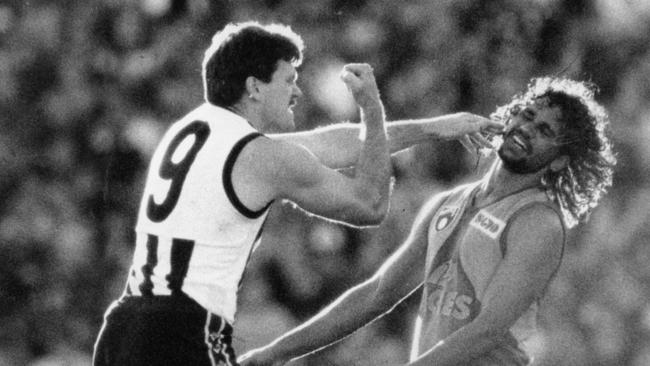
HM: How did you transition into the media?
BT: For most of my last year in 1990 I was doing a show with 3UZ called, The Good, The Bad and The Ugly. It was live, 5am til 7am, on a Saturday. I asked the club whether I could do it, and they said no. I quickly said “It’s prerecorded the day before”. It wasn’t. They relented and I don’t think they ever knew that it was live radio, they always thought I’d taped it on the Friday, so it wouldn’t affect my footy.
HM: Then?
BT: I was still plumbing at that stage, but I got an opportunity to do my own late-night show. I did one or two years at 10.30pm to midnight, after all the racing had finished.
HM: Is the overnight show where you ended up speaking with Nadia Comaneci and George Foreman?
BT: I had a great producer by the name of Matty Weiss, who’s gone on to do bigger and better things, and that was his first job in radio. He wanted a big name guest each week. He rang all sorts of people, we spoke to Carl Lewis, Nadia Comaneci, Charlie Francis who was Ben Johnson’s coach at the time, Clyde Drexler, Evander Holyfield, Thomas “The Hit Man” Hearns. He arranged all of these interviews with these international sporting superstars, and here they were being played when no one actually heard them! Bruce McAvaney had wondered how we were getting guests of that quality. He recruited Matty Weiss to Channel 7 to do his work as a result of that.
HM: Did George Foreman leave you half way through an interview?
BT: He did … I’m not sure he knew we were live on air … and I think he might have taken another call or gone and answered the door bell! He left me for about five minutes and I just spoke about what I thought he might be doing before he returned! It must have sounded very strange!
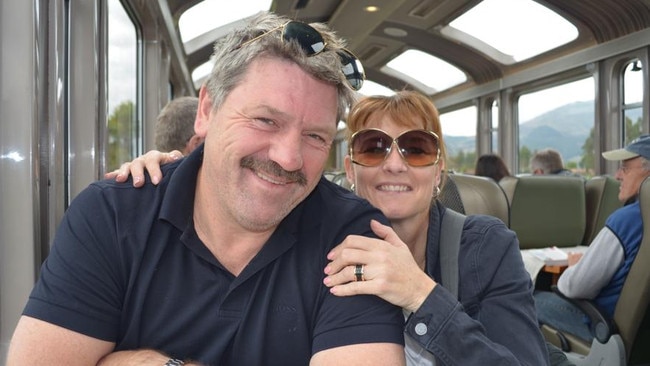
HM: Triple M is where your media career took off. Who called you and said come over and be a part of the inaugural team?
BT: Ricky Nixon at Flying Start, because he was organising the talent for Triple M at that particular time. He was part of the Triple M line up himself.
HM: You’ve been calling for 30 odd years now — how long before you felt really comfortable?
BT: I reckon it was five to ten years before I felt comfortable enough to be ‘me’ and try and entertain. Smoky Dawson and Harry Beitzel had taught me the “three w’s” — who’s got it, where is it and what’s the score? The entertainment factor, and the other bits of dressing around the edges came much, much later. I remember I talked about a player that was injured and said, “He’s moving like a trailer with a broken axle”. Lee Simon, my boss at Triple M, had heard that. He mentioned to me that it was a great description. That gave me the confidence to go searching for other similar descriptions and have a bit of fun with it. Coming from a fairly basic education back in Mandurah, I wasn’t great with the English language, and am still a little basic.
HM: It didn’t necessarily come easily, or naturally, to you?
BT: Not at all. Calling was not a natural thing at all for me. It came with work, it came with exploring, and it came with learning about myself. I remember calling with Eddie McGuire one day, and he named Leon Davis ‘Neon Leon’. Rex Hunt was my hero and hearing him call and have all these nicknames for players, I loved it.
HM: Is the environment more complicated to call in now than ever before?
BT: Absolutely. That exploring for me has not ceased, but it’s become much more careful and selected. We’re now in an environment where one word can mean a lot to people, whereas perhaps back then people weren’t as sensitive with it, or didn’t have a voice to tell you they were offended. You have to be so careful with the way you put your words together in such a short period of time. We’re talking split seconds. The description of someone’s goal, the description of the way someone’s treated the umpire. It’s a split-second thing, and you’re not always going to get it right.
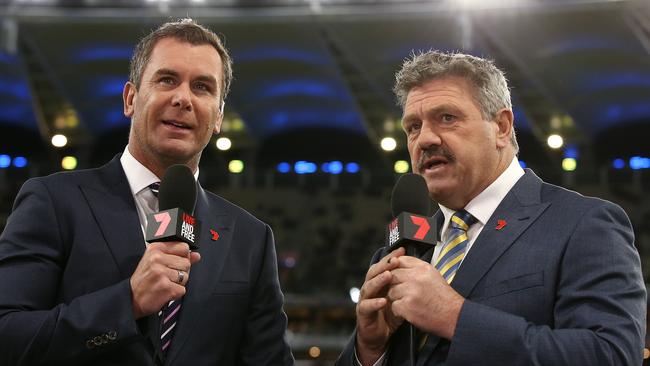
HM: Describe working with Bruce McAvaney.
BT: The best possible job in the world, under the tutorage of the best coach in the world. He want’s people around him to be better, and he wants them to be included in the broadcast.
HM: Agreed — he’s phenomenal. Where did, “Boy oh boy, wowee”, come from?
BT: I have a bit of a liking for old school words, and phrases. I don’t know how it eventuated, but I can remember thinking that that particular wording was something I hadn’t heard since I was a kid in school. It seems to have stuck.
HM: Are you obsessive compulsive?
BT: In some aspects of my life, I am, yes, you know that!
HM: Boarding planes …
BT: I have to be first … first in line …. as you point out, even if that means being at the gate 40 minutes before I am due with the odd delay!
HM: How many Vegemite jars have you got in your tool shed, and what’s in them?
BT: I have got about twenty-five years’ worth of Vegemite jars, four boys, vegemite toast for breakfast every morning, Vegemite sandwiches for school, so you can imagine the quantity. It’s a couple hundred jars of large jars of Vegemite, which contains every screw, nut and bolt you can possibly think of. And every jar is lined up, labelled and marked, and it just has to be like that or my world feels a little out of kilter!
HM: It’s an immaculate tool shed. My father has got an amazing ability with a forge, to be able to make terrific things out of horse shoes and old metal, whether it be a fire poker or a hat rack. You like making things with your hands?
BT: I love making things. Originally, I was really good with metal — I’m a good welder, because that’s what my Dad taught me. Dad was very good with his hands. As a young kid I was racing motorbikes, and after every race meeting, he would say, “OK, I want you to strip the bike down, take the head and the cylinder off, polish the piston, polish the barrel”. I was educated a little bit mechanically. In more recent years I’ve progressed to making recycled hardwood tables. I’ve become better with the woodwork side of things as well. I’m about to head off down the shed now, and I’ll spend the rest of the day in the shed doing not much but getting great enjoyment out of it.
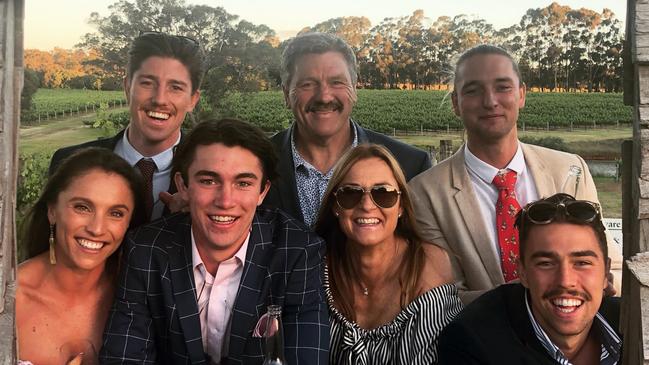
HM: What is it that you love so much about the Northern Territory?
BT: The people. I have many indigenous friends, and I love the way they do things and the way they go about things. Guys like Phil Egan, Maurice Rioli back in my Richmond days. I can go back into my school days with guys like Shaun Morris, Theo Keering, all these young indigenous guys that I went to school with. Right through to now, with someone like Gilbert McAdam, or Tony Armstrong, Leon Davis. I love going to the outback with Gilbert McAdam in the Northern Territory. I love when he takes me to where he was brought up, and shows me how tough it was, and what sort of a lifestyle they had then, and have now. That inspires me to want to help.
HM: I’ve never seen you as happy as when we did the Melbourne vs West Coast game in Alice Springs. You looked like you were at home.
BT: I loved the feel of it. It’s a small town, you know everyone, your familiar with everyone, and there’s something about going to Alice Springs, and Darwin, and getting right into the culture of our country as well. Having friends that can take me there and can show me that is absolutely amazing.
HM: As a caller, do you ever leave the broadcast box happy?
BT: No — sadly. I’m still looking for the one game where I don’t make a mistake. I can’t remember coming home from a game having not made a mistake. I’m trying to eliminate mistakes, and I’m trying to get to the point where I don’t make a mistake, but it hasn’t happened yet!
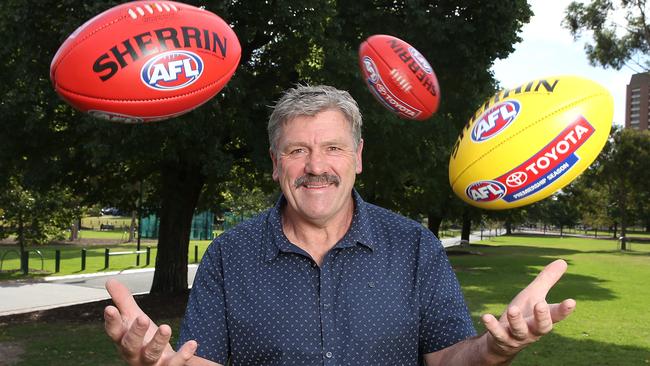
MORE NEWS:
PONTING OPENS ABOUT FAMILY, LOVE
